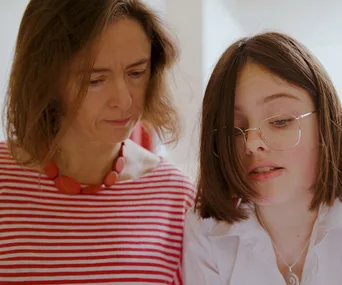In this era of celebrating inclusivity and diversity, it can seem a bit off-brand to pull out a handful of names and brand them as “amazing”.
We recognise there are so many women doing inspiring things – it could be volunteering for a cause they’re passionate about, setting up recycling programs at their school or office or regularly showing acts of kindness to others.
And on International Women’s Day (IWD) this Sunday, March 8, an annual event which began more than 100 years ago, we take a moment to recognise and celebrate the myriad achievements of women.
Now to Love is wishing Happy IWD to all our readers and also taking to opportunity to shine a light on a few impressive women you may not read about all the time or see on television but who are achieving monumental stuff that we feel needs to be recognised.
Prepare for some seriously inspiring female energy ahead as we introduce some women to watch, know and follow in 2020.These women are true role models for our next generation of women.
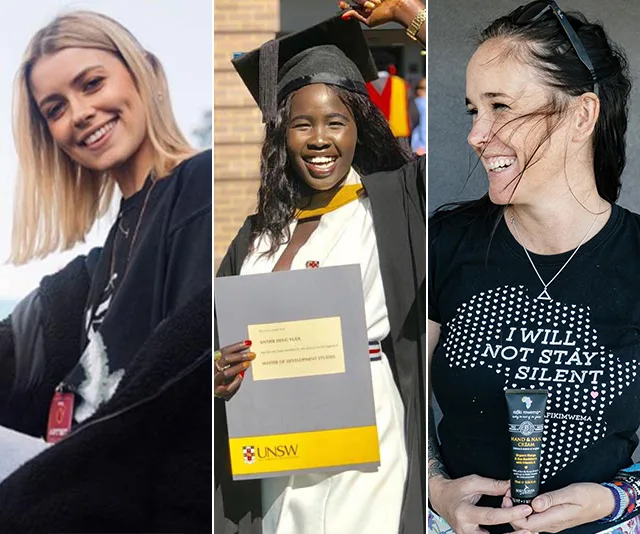
Keep scrolling as we uncover some of the country’s most inspiring females.
Amanda McKenzie, CEO of the Climate Council
Amanda McKenzie has traced her passion for the climate back to her school days – and her parents’ own involvement with putting their hands up to make change. “I suppose it was in my DNA, I wanted to contribute to the world and make a difference,” she told Women’s Agenda.
The climate leader, now a mum herself of a two-year-old daughter, founded her first not-for-profit at the age of 20, the Australian Youth Climate Coalition.
Then several years later, she launched the Climate Council alongside former Australian of the Year, Professor Tim Flannery, in what was the largest crowd-funding campaign in Australian history at the time.
Her list of involvements and achievements is long – but as this is International Women’s Day, we note she is also on the board of Plan International Australia, a charity which works to tackle the root causes of the injustices facing girls and the most marginalised children.
Why should the next generation of women should know about Amanda?
This quote of Amanda’s pretty much sums it up: “I always had the attitude that you get this one precious life, so how can you have the most possible impact?”
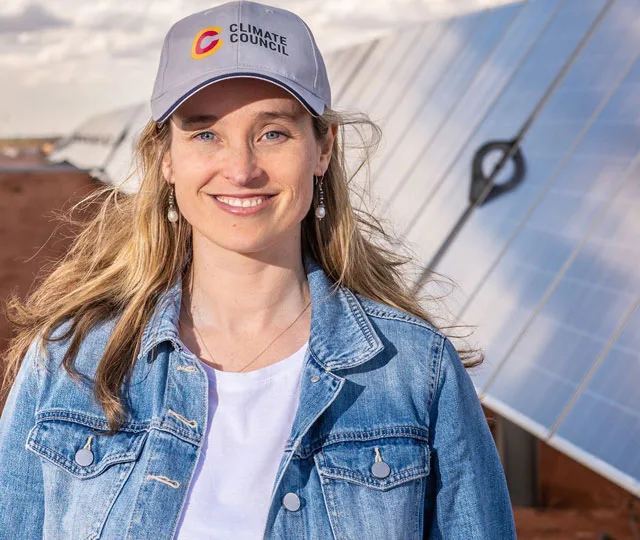
Amanda McKenzie, CEO of the Climate Council.
(Supplied)Anyier Yuol, founder of the Miss Sahara Pageant
Aniyer Yuol was born in a refugee camp in Kenya after her South Sudanese parents fled the war there and her story is nothing short of inspirational.
At the tender age of 10 years old, she left everything she knew behind and moved to Sydney with her cousins and went on to complete a Bachelor Arts in Social Science Major in Development Studies, Sociology and Anthropology and then a Masters of Development Studies.
But on the side, Aniyer got involved with modelling and beauty pageants and it was in then she noticed a lack of diversity in this world, particularly for African women.
“I’ve never actually been someone who was interested in fashion but when I came across a beauty pageant what interested me was it was a platform where you can use your own voice in terms of advocacy,” she said.
Aniyer then kick-started the Miss Sahara Pageant that celebrates African women in Australia and fosters role modelling and leadership skills as well as values the participants’ abilities to advocate and raise awareness of Africa’s various cultures.
“When I started Miss Sahara I was like ‘How can I make it a platform that actually highlights important things that women face in the industry?'”
Why should the next generation of women should know about Aniyer?
She has helped to empower African Australian women to use their voices to make social change.
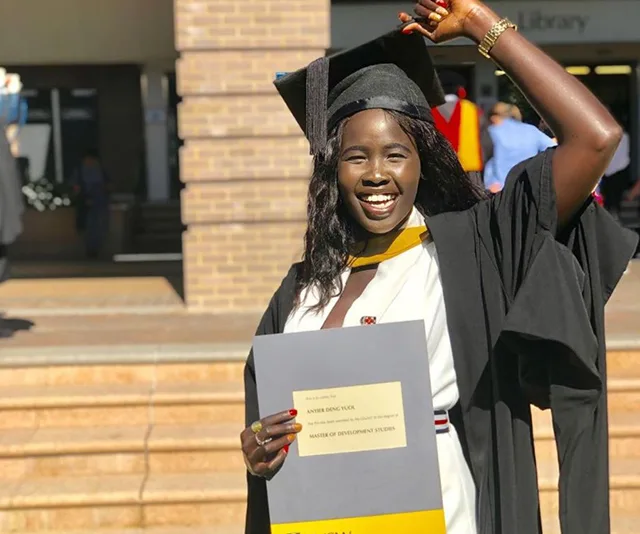
Anyier Yuol, founder of the Miss Sahara Pageant.
(Instagram)Bridget Hustwaite, raising awareness for endometriosis
After working her way up the ranks of community radio and pulling midnight-to-dawns on radio station Triple J, Bridget Hustwaite landed her dream job as the host of Triple J’s Good Nights Show.
The presenter has quickly become one of the network’s most loved personalities and behind-the-scenes, the Ballarat local is garnering praise for her tireless work around Endometriosis.
After the 29-year-old was diagnosed with the condition in 2018, she decided to set up an Instagram page, aptly titled @Endogram, to help raise awareness around the illness and create a safe haven for fellow sufferers.
The stunningly curated page, which features enlightening, witty reassuring and well researched captions has since taken off with over 13,000 followers and counting.
“There’s definitely a lot of negatives about having endometriosis but the fact that there is no prevention or cure has really motivated me to be more vocal about the condition,” she told Sportsgirl of the inspiration behind starting the page and becoming an ambassador for Endometriosis Australia.
“I don’t want to use my energy dwelling on having a chronic illness, instead I’m constantly thinking ‘How can I use this knowledge to my benefit and what good can I get out of it for myself and others?’ So if anything, having my Endometriosis diagnosed has enabled me to think a bit more positively and given me that extra drive to help others who are also suffering but may not have the platform to speak up about it like I do.”
Endometriosis is a condition that affects one in 10 women across the world, but is often left undiagnosed or misdiagnosed.
Why should the next generation of women should know about Bridget?
She’s helping normalise and bring awareness to a chronic and often very painful condition that is only suffered by women.
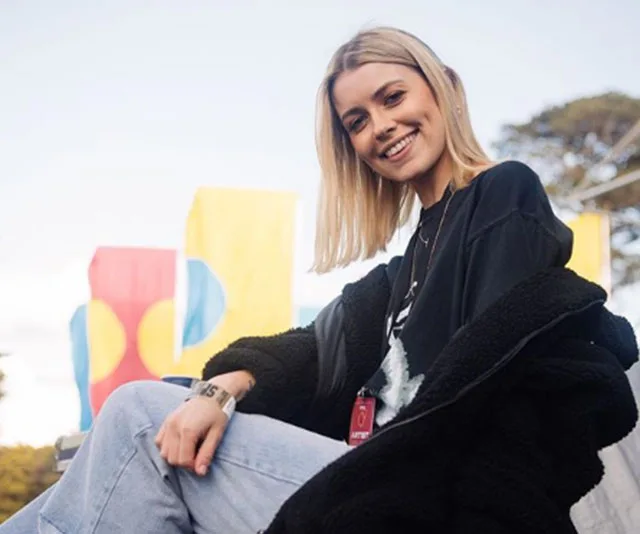
Bridget Hustwaite raises awareness for endometriosis.
(Instagram)Brittany Noonan, mental health and wellness advocate
Incredibly open about her mental health battles and lifelong body images issues, parenting influencer Brittany Noonan encourages her 131,000–strong tribe of followers to become the healthiest versions of themselves while embracing who they are.
Regularly sharing positive affirmations and fitness tips for time-poor parents, Brittany documents her life’s ups and downs, including her struggles with antenatal depression and anxiety as well as detailing how she grappled with eating disorders in her youth.
“It’s not easy and it’s not instant, you can’t just flick a switch a love yourself and or your body. It’s a constant battle with your own thoughts and self judgements,” she writes.
“It’s not about being perfect or really even about your body at all. It is about accepting yourself with every flaw or every imperfection. It’s about learning that self love comes from within and that your body is not the determining factor of your worth.”
Why should the next generation of women should know about Brittany?
She encourages women to love themselves exactly as they are.
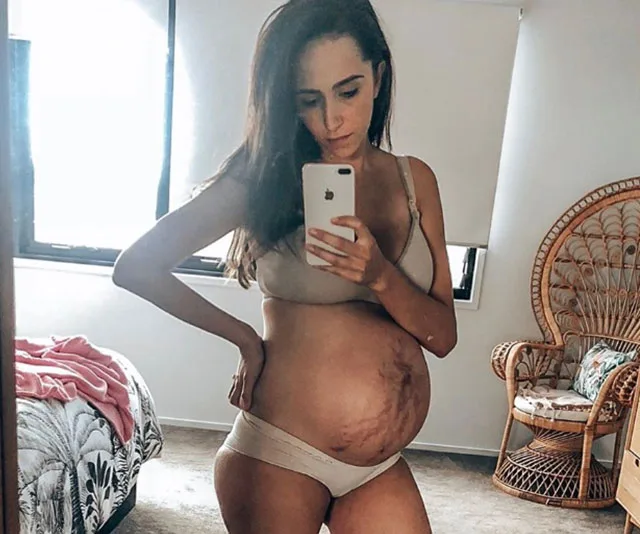
Brittany Noonan, mental health and wellness advocate.
(Instagram)Marlee Silva, co-founder of Tiddas 4 Tiddas
A proud Gamilaroi/Dunghutti woman, Marlee Silva has accomplished some impressive things in her 24 years.
Growing up, Marlee and her sister were the only students who identified as Aboriginal and revealed that her peers liked to make her remember that she was “very different to them,” and at 17 was even confronted by a piece of graffiti done by her fellow students that read ‘Marlee Silva sniffs petrol.’
“I left school without support from teachers in a lot of those instances and feeling as though I was ok to be an Aboriginal person when it was good for them and they could parade me around at NAIDOC events and things like that but when I needed help and support particularly when it came to racial vilification, the support just wasn’t there,” she told the ABC’s Q&A.
Marlee is a writer, podcast host and co-founder of Tiddas 4 Tiddas, a social media-based movement all about celebrating inspiring Aboriginal and Torres Strait Islander women and girls from around Australia.
On top of that, she’s about to release her debut novel My Tidda, My Sister inspired by Tiddas 4 Tiddas is set to be released in September 2020.
“My memories of International Women’s Day as a teenager were actually my male peers complaining about not having an International Men’s Day or there was a big surge in jokes about us needing to be in the kitchen and trying to shut down discussions around that sort of stuff,” Marlee remarked, before adding that the attitude prominent in teenagers need to be shut down.
Why should the next generation of women know about Marlee?
She is a driving force behind the fact that racial representation matters.
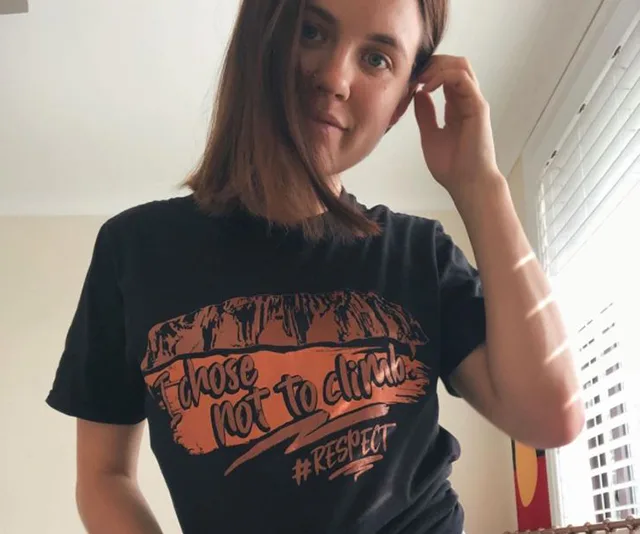
Marlee Silva, co-founder of Tiddas 4 Tiddas
(Instagram)Erica Bartle, founder of Outland Denim
“I think we all have a responsibility to use whatever it is we have been given in life to benefit the lives of others,” Erica says – and this forms the basis of her company, Outland Denim.
The brand works with women in developing countries, giving vulnerable and exploited women opportunities to work and up-skill with them, all why offering them sustainable employment and training opportunities.
“It wasn’t by choice that I landed myself in Australia with lovely middle-class parents who sent me off to private school and university and paid my ballet tuition, but I’m so grateful that they did,” she tells Now To Love.
“I also got to choose who I married and when, and what career to pursue. I’m also blessed to have children who I wanted desperately. And I am entitled to none of that at all, but there it is. I’m blessed.”
But the less happy stats have always worried Erica – such as that women and girls make up 99 per cent of the the 4.8 million victims of sex trafficking in the world, and at least 200 million women and girls aged 15-49 have undergone female genital mutilation.
“Around the world, 132 million girls are out of school, including 34.3 million of primary school age, 30 million of lower-secondary school age, and 67.4 million of upper-secondary school age,” Erica explains.
“None of that is terribly fair. So I do think that if we have privilege, we should use it for the greater good; and if the opportunity doesn’t present itself to do so, you can make one. That is Outland Denim.”
Why should the next generation of women know about Erica?
She has made the most of her own circumstances and assets to help others less fortunate. It sounds simple, but it’s made a huge difference.
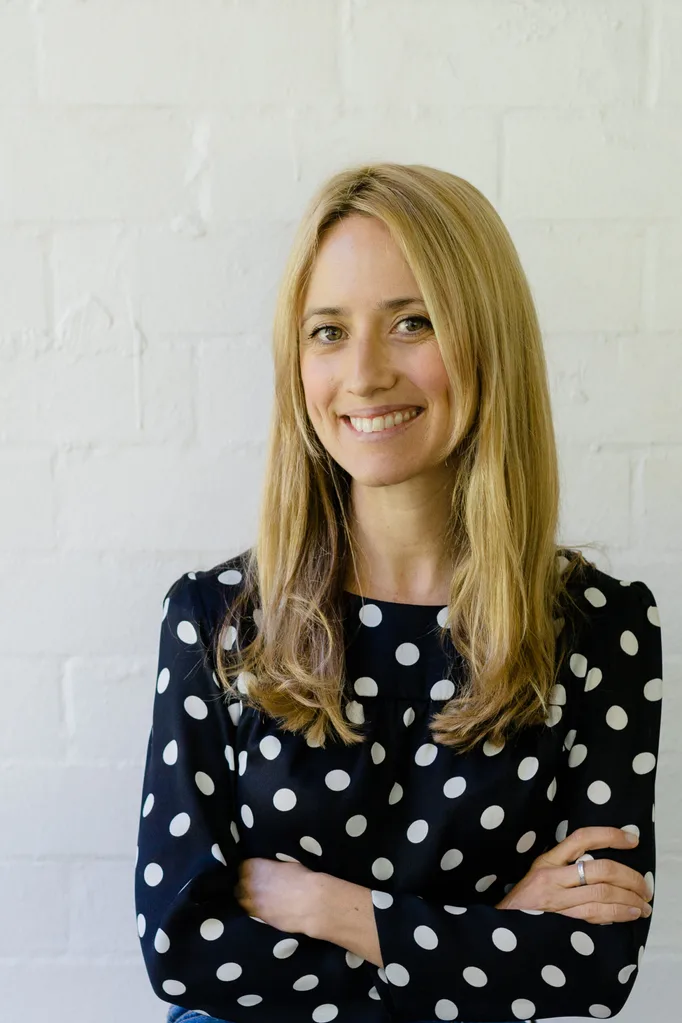
Erica Bartle, founder of Outland Denim.
(Supplied)Sam Bloom, Paralympian
In 2013, Sam Bloom’s life changed forever after suffering from a horrific balcony fall in Thailand, which left the Sydney mother-of-three paralysed and depressed.
Just as Sam was losing hope, a stray magpie chick called Penguin literally fell into her life from of a tree into her backyard. The Bloom family of five could never have expected how integral this tiny baby magpie would become to their family.
Seeking veterinarian advice, the family began hand rearing the fragile little creature, and as he grew strength, Cameron, a professional photographer began documenting their life with Penguin – named by the children for his colourings – and he soon became a social media star.
While Penguin and the children certainly had a special bond it was, perhaps, Penguin’s relationship with mum, Sam that made the most impact on their life as a whole. She credits raising Penguin with helping her beat her depression and start living again.
“By the time (Penguin) was ready to make her home in the wild and start her own family, I had won two national kayaking titles and was bound for the world championships in Italy as a member of the Australian para-canoe team. More importantly, I was my own person again, with new dreams and new reasons to smile. For the first time since my accident I felt truly alive,” she told Time magazine.
It’s little wonder her remarkable story is now being turned into a Hollywood feature film with Aussie actress Naomi Watts set to play Sam.
Why should the next generation of women should know about Sam?
Sam’s story really is about one door being slammed viciously shut but another one swinging open, promising all sorts of hope.
Sam Bloom, Paralympian
(Instagram/Hugh Stewart Gallery)Sarah Rosborg, founder of charity Rafiki Mwema
Sarah Rosborg’s story has been far from easy, but you wouldn’t even know it when you see the incredible, positive and inspiring work she tirelessly does.
Involved in a harrowing car accident, the Aussie native suffered horrific injuries including a broken hip, pelvis, and femur. But it was during her time in hospital, that she hatched her generous plan and Rafiki Mwema was born.
Sarah felt a connection with Africam, and when she heard the horrific stories of sexual abuse suffered by Kenyan girls, as young as 18 months old, she couldn’t ignore them.
In collaboration with UK-based friend Anne-Marie Tipper, the pair started with building a therapeutic safe house in Kenya. Today this property includes several houses and houses 70 children as young as 18 months old. They have also helped to re-establish a further 150 children back into their home community via the Rafiki Mwema Outreach Programme.
In August last year, Rafiki Mwema was chosen as one of 15 charities to be followed by Sussex Royal, the official Instagram account of Prince Harry and Meghan Markle.
.
Why should the next generation of women should know about Sarah?
While things were tough, Sarah was tougher – powering through her own turmoil, she used her strength to help others. There’s a lot to be said for that.
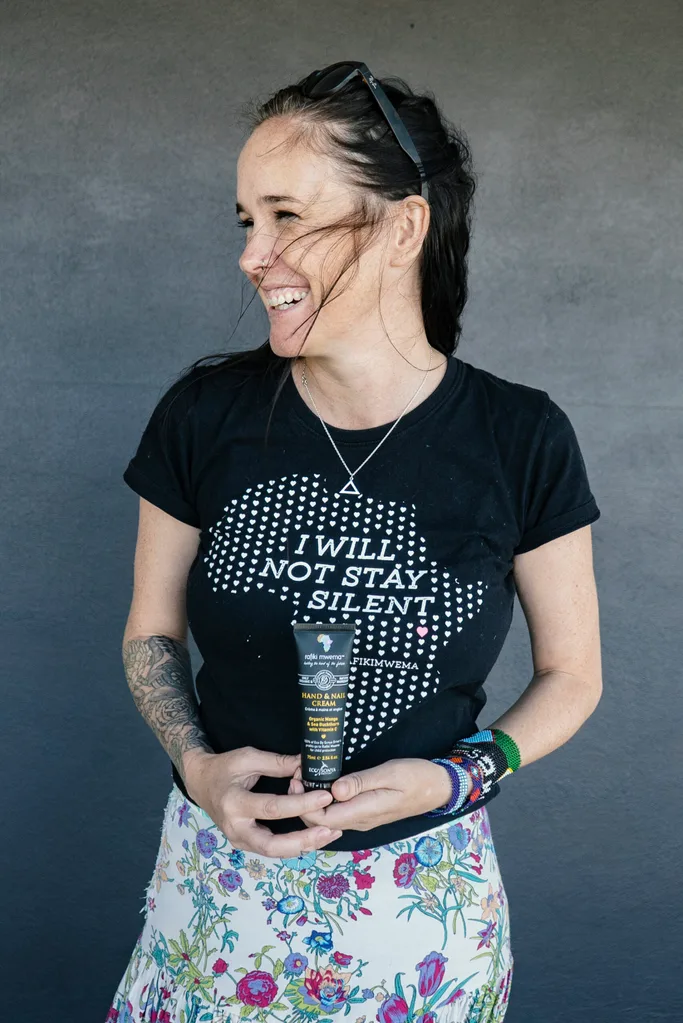
Sarah Rosborg, founder of charity Rafiki Mwema
(Supplied)Sinéad Canning, reproductive rights campaign manager
While many women banded together for years as they fought the marathon battle to overturn New South Wales archaic abortion laws, NSW Pro-Choice Alliance’s campaign manager Sinead Canning played a key role.
0Abortion was finally decriminalised in NSW’s criminal code in October 2019 for the first time since its creation in 1900 as part of the Crimes Act.
The Abortion Law Reform Act 2019 was made possible thanks to tireless campaigning by groups led by people like Sinéad despite resistance, trolling and seemingly endless setbacks such as an Abortion amendment bill failing to pass in 2016.
Meanwhile In October 2018, the Termination of Pregnancy Bill was passed in Queensland, decriminalising abortion in that state; Sinéad also led this successful pro-choice campaign.
“When it comes to my reproductive rights, and the reproductive rights of those who are women and those have a uterus, you don’t have a full suite of reproductive rights,” she told SBS ahead of NSW parliament passing their state’s amendment.
“This is not something that happens in the never, never. It is happening in NSW now.”
Thankfully, due to women like Sinéad fighting for the cause, these words no longer have to ring true.
Why should the next generation of girls should know about Sinead?
She helped women take back control of choices about their own body – rights so inherent that future generations may take for granted.
1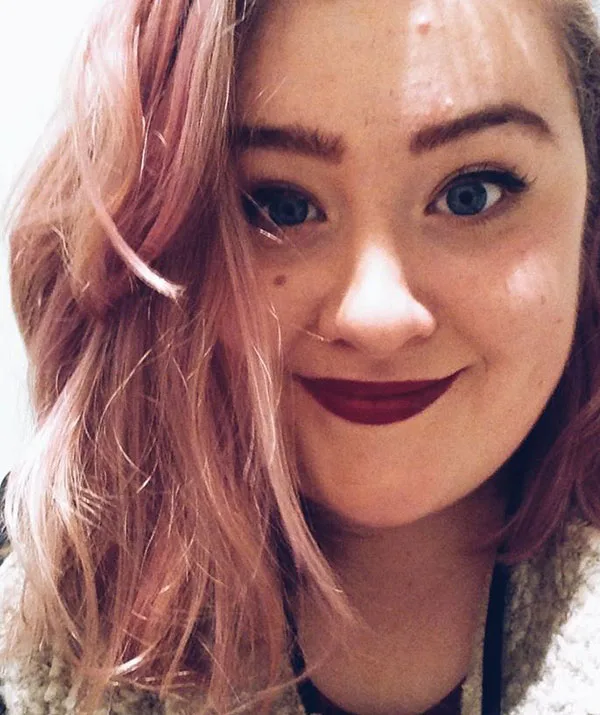
Sinéad Canning, reproductive rights campaign manager
(Facebook)